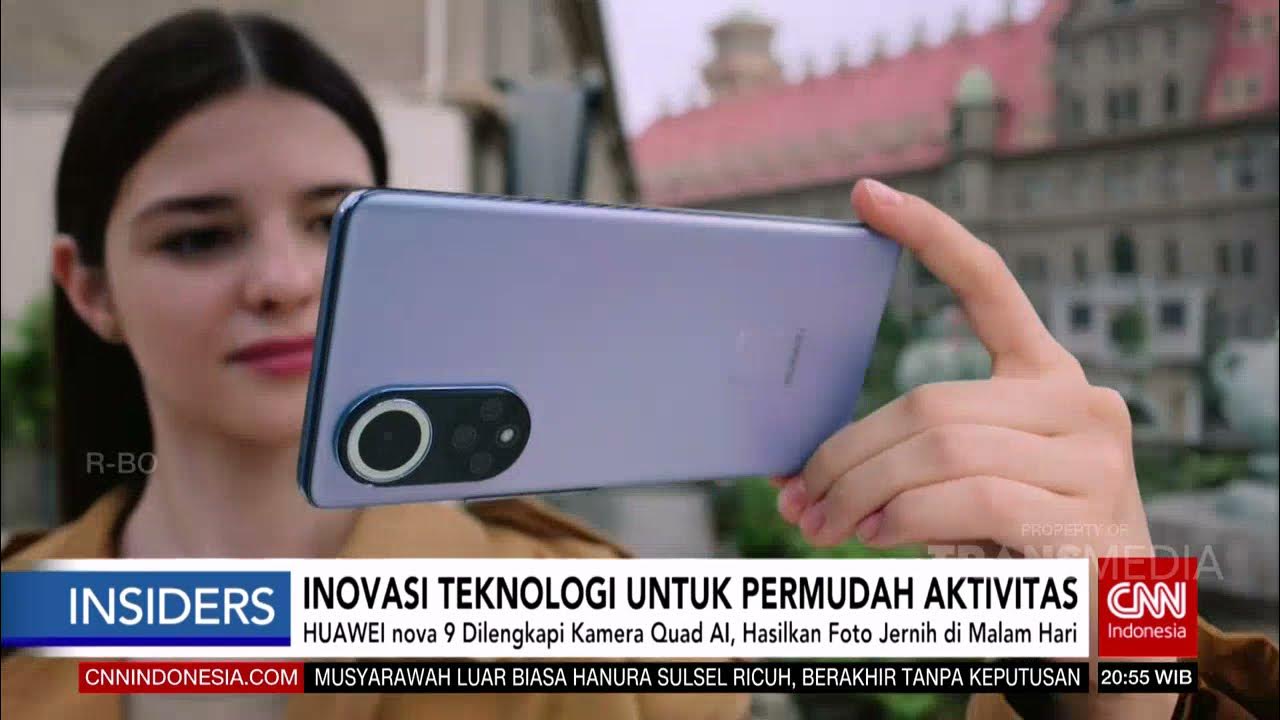Huawei's Chinese Phones Are Also American | WSJ
Summary
TLDRThis video explores the impact of the US Commerce Department's blacklisting on Huawei, a Chinese smartphone giant. Despite being the world's second-largest smartphone seller, Huawei faces a potential loss of American software and parts, affecting its global user base. The ban could disrupt the supply of crucial components and software from US companies like Qualcomm and Google, potentially leading to reduced functionality and security for Huawei devices. The video also highlights the complex global supply chain and the challenges of doing business amidst geopolitical tensions.
Takeaways
- 📱 Huawei is the world's second-largest smartphone seller and is very prevalent in Asia.
- 🇺🇸 Despite being less common in the US, Huawei smartphones contain American software and parts.
- 🚫 The US Commerce Department has blacklisted Huawei, preventing American companies from selling technology to them.
- 🔍 Huawei has been accused of being a national security threat by the US government, which Huawei denies.
- 💡 Huawei smartphones rely on Google's Android OS and apps like Google Maps and Gmail, which may become unavailable due to the ban.
- 💻 US companies like Qualcomm, Intel, and Micron Technology are among Huawei's core suppliers, indicating potential negative impacts on them as well.
- 🏭 Many critical components of Huawei phones, such as Gorilla Glass by Corning and audio amplifiers by Cirrus Logic, are made in the US.
- 🌐 The situation exemplifies the complex nature of globalization and the unpredictability of the global supply chain.
- 🔄 Companies like Google, Skyworks, and Micron are responding to the ban by complying with the order and suspending shipments to Huawei.
- 🛠️ Huawei is attempting to mitigate the impact by stockpiling parts and developing its own operating system as an alternative to Android.
Q & A
What is the significance of Huawei's presence in the smartphone market in Asia?
-Huawei is the world's second biggest seller of smartphones and is ubiquitous in places like Hong Kong, indicating its significant market presence in Asia.
Why are Huawei smartphones considered 'very American' despite not being common in the US?
-Huawei smartphones contain software and parts familiar to American users, such as Google Maps, Gmail, and a scratch-proof screen made in the US.
What is the US Commerce Department's stance on Huawei?
-The US Commerce Department has blacklisted Huawei, preventing American companies from selling technology to them, citing national security concerns.
What are the accusations against Huawei by the US government?
-The US government accuses Huawei of being a national security threat and potentially aiding the Chinese government in spying through its products.
How much did Huawei spend on procurement from US firms in 2018?
-Huawei spent approximately $11 billion on procurement from US firms in 2018.
What percentage of Huawei's core suppliers are US companies?
-33 out of Huawei's 92 core suppliers are US companies.
What could be the potential impact of the US ban on American tech companies?
-The ban could lead to a loss of revenue for American tech companies, as Huawei is a significant purchaser of their products and services.
Which American company provides the glass used in Huawei smartphones?
-Corning, an American company, provides the Gorilla Glass used for the scratch-proof screen of Huawei smartphones.
What role does Cirrus Logic play in Huawei smartphones?
-Cirrus Logic, a Texas-based company, provides the audio amplifiers that ensure loud and clear audio signals in Huawei smartphones.
Which company is responsible for the power amplifier in Huawei's latest model?
-Skyworks, a Massachusetts-based company, makes the power amplifier crucial for maintaining network connectivity in Huawei's latest model.
What is the importance of Micron Technology's storage chips in Huawei smartphones?
-Micron Technology provides the robust storage chips necessary for storing selfies, videos, and other data on Huawei smartphones.
How is globalization exemplified in the production of Huawei smartphones?
-The production of Huawei smartphones involves components from various countries, including the US, Japan, France, Germany, and China, showcasing the interconnected nature of globalization.
What steps has Huawei taken in response to the US actions?
-Huawei has been stockpiling parts and developing its own operating system as a substitute for Android in response to the US restrictions.
What could be the potential downside for Huawei users if US components are replaced?
-The replacement of US components could result in hardware and software that may not be as high-quality, potentially affecting the user experience.
Outlines

Dieser Bereich ist nur für Premium-Benutzer verfügbar. Bitte führen Sie ein Upgrade durch, um auf diesen Abschnitt zuzugreifen.
Upgrade durchführenMindmap

Dieser Bereich ist nur für Premium-Benutzer verfügbar. Bitte führen Sie ein Upgrade durch, um auf diesen Abschnitt zuzugreifen.
Upgrade durchführenKeywords

Dieser Bereich ist nur für Premium-Benutzer verfügbar. Bitte führen Sie ein Upgrade durch, um auf diesen Abschnitt zuzugreifen.
Upgrade durchführenHighlights

Dieser Bereich ist nur für Premium-Benutzer verfügbar. Bitte führen Sie ein Upgrade durch, um auf diesen Abschnitt zuzugreifen.
Upgrade durchführenTranscripts

Dieser Bereich ist nur für Premium-Benutzer verfügbar. Bitte führen Sie ein Upgrade durch, um auf diesen Abschnitt zuzugreifen.
Upgrade durchführenWeitere ähnliche Videos ansehen

INOVASI TEKNOLOGI UNTUK PERMUDAH AKTIVITAS | INSIDER (29/10/21)

AS Berusaha Hancurkan Sektor Teknologi Tiongkok_Dan Huawei Meluncurkan Akuisisi Senilai $230 Miliar

Why Everyone is Buying iPhones now.

How Temu Is Becoming a Serious Competitor to Amazon and Walmart | WSJ

The Dirty Mobile Phone Industry | Investigative Documentary

Is TikTok a THREAT?
5.0 / 5 (0 votes)
